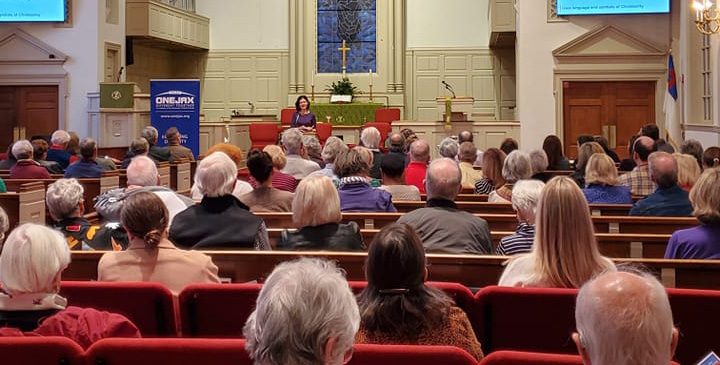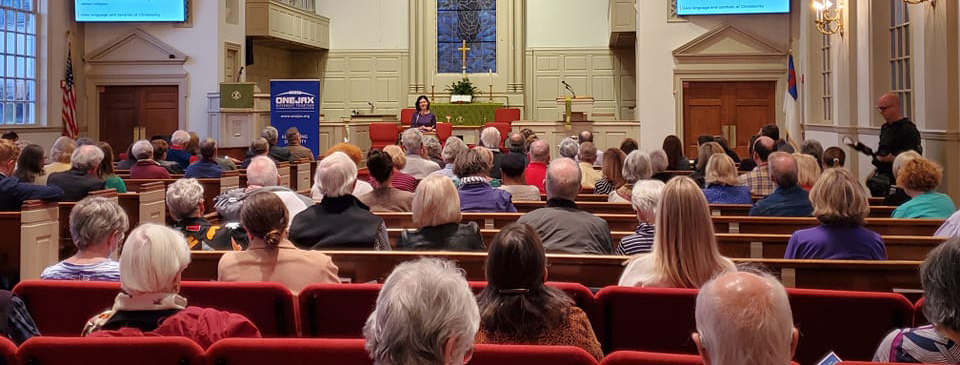One of the scariest things about Christian nationalism — especially for a Black Baptist minister— is its symbiotic relationship with white supremacy expressed through the myth that America was founded as a Christian nation, Christopher McKee Jr. explained to an interfaith audience in Jacksonville, Fla., Oct. 20.
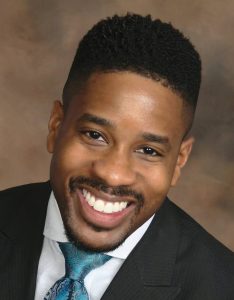
Christopher McKee
Just as alarming is the insidious way Christian nationalism is reshaping much of American Christianity from a path of liberation in Jesus into a religion of political and racial control, said McKee, senior pastor of the Church of Oakland, a Baptist congregation in Jacksonville.
“Its language becomes the language of subjugation and oppression which, sadly, has been so much part of this nation’s fabric, which builds into this myth,” he said. “It makes it OK for us to have this false idea that to be racist, to be complicit in systems and structures of oppression, makes you Christ-like. For me, that’s the antithesis of who Jesus is.”
McKee spoke during “How Christian Nationalism Threatens Democracy and Christianity,” an in-person event featuring a presentation by Amanda Tyler, executive director of Baptist Joint Committee for Religious Liberty.
The gathering was presented by the University of North Florida’s OneJax Institute, the Interfaith Council of Northeast Florida, BJC and South Jacksonville Presbyterian Church, which hosted the program. OneJax Executive Director Kyle Reese moderated the discussion.
Tyler launched into the myth-busting theme in her opening remarks, noting that the nation’s founders made no reference to Christianity in the Constitution.
“If you’re forming a Christian nation, why wouldn’t you mention Christianity in your founding documents?”
“That’s pretty peculiar. If you’re forming a Christian nation, why wouldn’t you mention Christianity in your founding documents?” she asked.
The Constitution also expressly forbids the use of a religious test for public office, she added. “Again, peculiar. You’re setting up a Christian nation. Why would you prohibit any religious test in order to hold public office?”
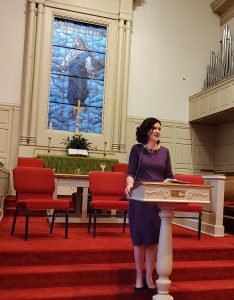
Amanda Tyler speaking in Jacksonville
The First Amendment goes even further by building a wall between government and religion in direct opposition to the intimate relationship between faith and politics claimed by Christian nationalists, Tyler said.
And this, in turn, distorts Scripture: “Not only does this Christian nation myth belie history in the constitutional texts, but it also works against a Christian understanding of a global church. In John’s Gospel, ‘God so loved the world,’ not ‘the United States.’ This idea that America is singled out for special treatment by God goes against the gospel itself.”
Christian nationalism has even twisted what it means to be patriotic in part by usurping phrases such as “In God We Trust” and “God Bless America” into racially and politically charged litmus tests “to be true Americans,” Tyler said.
“Fighting Christian nationalism doesn’t require us to cease being patriots. It’s quite the opposite. Because Christian nationalism is such an urgent threat to American democracy, I believe patriotism requires us to fight against Christian nationalism.”
Embracing that political ideology often also means embracing racism, she added. “The Christian nation myth includes slavery. If you’re going to say that God’s providential hand was at work in the founding of the country, you can’t stop and say, ‘except for that slavery thing.’ So, ‘Christian nation’ imbues God’s favor on slavery, on racial violence, on segregation. And in this way, people can use the language of Christian nationalism as code in exchange for more explicitly racist language and imagery.”
Christian nationalism also erodes the natural curiosity many Americans have for religions other than their own, said speaker Rebekah Hutto, a Presbyterian minister and executive director of the Interfaith Center of Northeast Florida.
“That we are a Christian nation is fake news.”
“The issue of Christian nationalism and interfaith dialogue is this myth that we’re all from one origin, which is to deny the pluralism that existed in this country when it was founded and before it was founded,” she said. “And it denies the pluralism that exists now. That we are a Christian nation is fake news.”
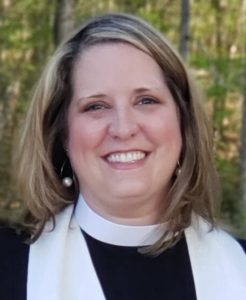
Rebecca Hutto
Christian nationalism has undermined the ability of Christians to have meaningful conversations and disagreements with each other on matters of faith, said Hutto, who is married to B.J. Hutto, senior pastor of Hendricks Avenue Baptist Church in Jacksonville. “Christian nationalism has severely fractured the Christian church. When we deny pluralism existed then, we deny pluralism exists now.”
McKee added that the rise of Christian nationalism has co-opted what it means to be an evangelical because the term has become synonymous with the right-wing movement: “What’s so unique about this myth of Christian nationalism, especially for an African American Baptist, is that it paints this story that this country was somehow founded with one specific religious instant.
“If you push a narrative that says, somehow or other, to be white and Christian makes you superior, then it’s not hard to caboose that to racism. If you are white and Christian and superior, then you can suppress everybody who doesn’t fit in those boxes — even folks who might share your faith but not share your race.”
Related articles:
Pennsylvania faith leaders launch bus tour against Christian nationalism
Advocacy group names 20 ‘false prophets’ of Christian nationalism

